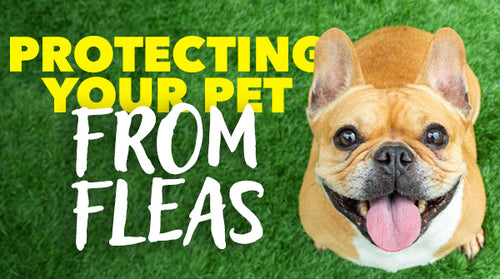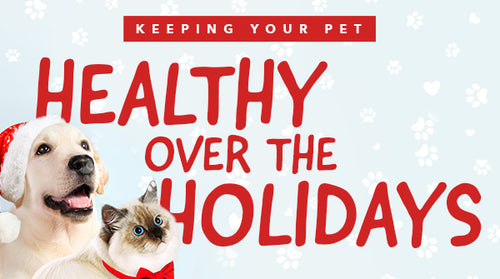What is CBD/hemp used for veterinary medicine?
» “The two things we definitely have clinical evidence for are osteoarthritis and seizure control in dogs,” says Gary Richter, DVM, owner of Holistic Veterinary Care in Oakland, California. “There are studies that bear those out.”
However, CBD has shown its worth in ways that outrun the available research; people are using it for pain control and inflammatory conditions such as asthma, for example. What’s more, “it seems to work well for anxiety and behavioral issues, generally at lower dosages than what’s used for pain and other physical uses,” says Robert Silver, DVM, who blogs at nurseyourpet.com.
Is there evidence that it’s safe and effective?
» CBD’s safety has been shown in studies and, as Richter puts it, “in the real-world experience of both pet owners and veterinarians.”
In terms of CBD’s effectiveness, supplement manufacturer Green Coast Pet in Pasadena, California, “has gotten a ton of really great feedback” from customers, according to president Mike Bateman. “They seem to think it works really well.” Richter agrees, saying, “I’ve had a lot of clients telling me that their dog had less pain or fewer seizures, or that the seizures were less severe.”
One pet parent who is sold on CBD is Jacquie Burian of Annapolis, Maryland.
Last year, she noticed that Hunter, the family’s 13-year-old English Labrador, “was in an incredible amount of pain. He wasn’t leaving the couch.”
CBD has made Hunter happier. Burian says he used to “hop and dance all the way into the kitchen” in anticipation of getting table scraps. When he started doing that again, “I absolutely knew it was working.”
One question that still needs to be answered is how CBD works in pets other than dogs, which have gotten most of the research love so far. What’s more, not all individual animals respond to CBD in the same way. “It works better in some patients than in others,” Richter says.
What is CBD/hemp’s legal status?
» What really let the CBD cat out of the bag was the passage of the 2018 Farm Bill.
Both hemp and marijuana are varieties of one species, Cannabis sativa; hemp can only contain less than 0.3% of THC (the stuff that gets you high). The Farm Bill helped ease legal restrictions on hemp cultivation and transport on the federal level. (Laws vary from state to state, however; to learn what’s legal in your state, go to the National Conference of State Legislatures website.)
Passage of the Farm Bill unleashed a torrent of companies rushing hemp products to market. Steve Smith, president of Pet Releaf in Colorado, says, “It’s become crazier than the Wild West.” What is needed is greater clarity in terms of industry standards for matters such as manufacturing practices and testing.
What’s also needed is some idea of how much hemp pet parents can safely give their companions. An industry group Smith is part of, the US Hemp Roundtable, is “in negotiations with the FDA” about a Daily Maximum Allowance for hemp, above which you would need to see a vet; he hopes to see this happen within the next 18 months.
Once standards are set, Bill Bookout, president of the National Animal Supplement Council (NASC), anticipates there will be a shakeout within the industry. “But CBD is here to stay,” he says. “The benefits are inarguable.”
What should I look for in a product? How can I find a reputable company?
» The bottom line: Do your homework.
For one thing, you need to know “the difference between hemp seed and CBD extract,” says Bateman. “Hemp seed doesn’t contain CBD.” You also need to decide on what form of CBD you’ll use, such as oil or chews: “If your dog is picky, I would suggest you try a soft chew first,” Bateman advises. (By law, hemp can’t be used as an ingredient in animal food.)
Silver says you should know what the product’s potency is—that will determine the dosage. If you’re not sure, he urges you to work with your vet.
Find a quality product. “Only buy from a reputable brand,” says Richter. “Ask for a certificate of analysis that will let you know exactly what is in the product and what is not in it, such as pesticides.”
When it comes to pesticides, Smith says, hemp “is a vacuum cleaner” that will readily pull them from the soil. He recommended looking for the USDA Organic seal. Smith says you should also be aware of how the CBD was extracted from the plant; the “cleanest and purest” is a method called supercritical CO2.
One way to cut through the clutter is to look for products that carry the NASC seal, which means that the group has audited a company for adherence to recognized standards.
Bookout also suggests using common sense. “Claims that sound too good to be true probably are,” he says. “Cheap products are generally cheap for a reason.”
Like this article? You’ll love our weekly newsletter
sign up here!
**These statements have not been evaluated by the Food and Drug Administration. This product is not intended to diagnose, treat, cure or prevent any disease.












































































